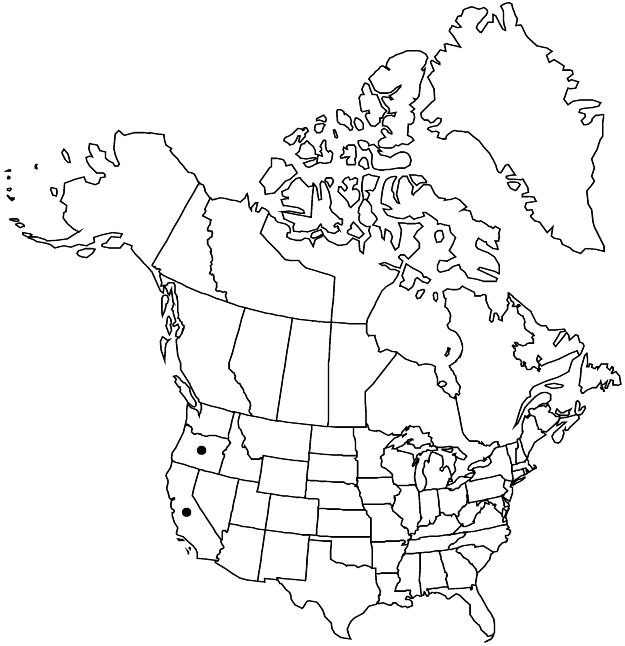Difference between revisions of "Horkelia congesta var. nemorosa"
Man. Pl. Oregon, 399. 1941.
FNA>Volume Importer |
imported>Volume Importer |
||
| (2 intermediate revisions by 2 users not shown) | |||
| Line 66: | Line 66: | ||
|publication year=1941 | |publication year=1941 | ||
|special status=Conservation concern;Endemic | |special status=Conservation concern;Endemic | ||
| − | |source xml=https:// | + | |source xml=https://bitbucket.org/aafc-mbb/fna-data-curation/src/2e0870ddd59836b60bcf96646a41e87ea5a5943a/coarse_grained_fna_xml/V9/V9_428.xml |
|subfamily=Rosaceae subfam. Rosoideae | |subfamily=Rosaceae subfam. Rosoideae | ||
|tribe=Rosaceae tribe Potentilleae | |tribe=Rosaceae tribe Potentilleae | ||
Latest revision as of 22:56, 5 November 2020
Stems ± ascending, usually reddish, sometimes greenish, 1.5–3 dm, hairs 2 mm proximally. Basal leaves (3–)4–8 × 1–2.5 cm; leaflets 2–4 per side, lanceolate-elliptic to oblong, 5–12 × (1–)3–5(–6) mm, (1/4–)1/3–1/2 as wide as long. Cauline leaves 2–5; stipules incompletely divided or divided no more than 2/3 into lanceolate, often acuminate teeth. Inflorescences usually composed of ± capitate glomerules. Flowers: epicalyx bractlets linear to narrowly elliptic, 1–2(–3) mm; hypanthium 1/2 to nearly as deep as wide; petals 2.5–3(–4) × (1.5–)2–3 mm; styles 2–3 mm.
Phenology: Flowering spring–summer.
Habitat: Serpentine flats, openings of conifer woodlands
Elevation: 200–800 m
Discussion
Of conservation concern.
Variety nemorosa occurs primarily in open ultramafic flats in the Illinois River Valley of southern Josephine County, Oregon; a single collection (Van Deventer s.n., CAS) from Shelly Creek in Del Norte County, California, also belongs to this variety. Plants from the head of Babyfoot Creek in Curry County (Leach 3006, OSC) are referable to var. nemorosa, although transitional to Horkelia tridentata var. flavescens; a collection from southwest of Waldo in Josephine County (Peck 8117, WILLU) also combines features of the two taxa.
The specimen cited by D. D. Keck (1938) from Douglas County, Oregon, is here referred to Horkelia tridentata var. tridentata; specimens cited from Jackson County, Oregon, are all intermediate with var. congesta.
Selected References
None.
